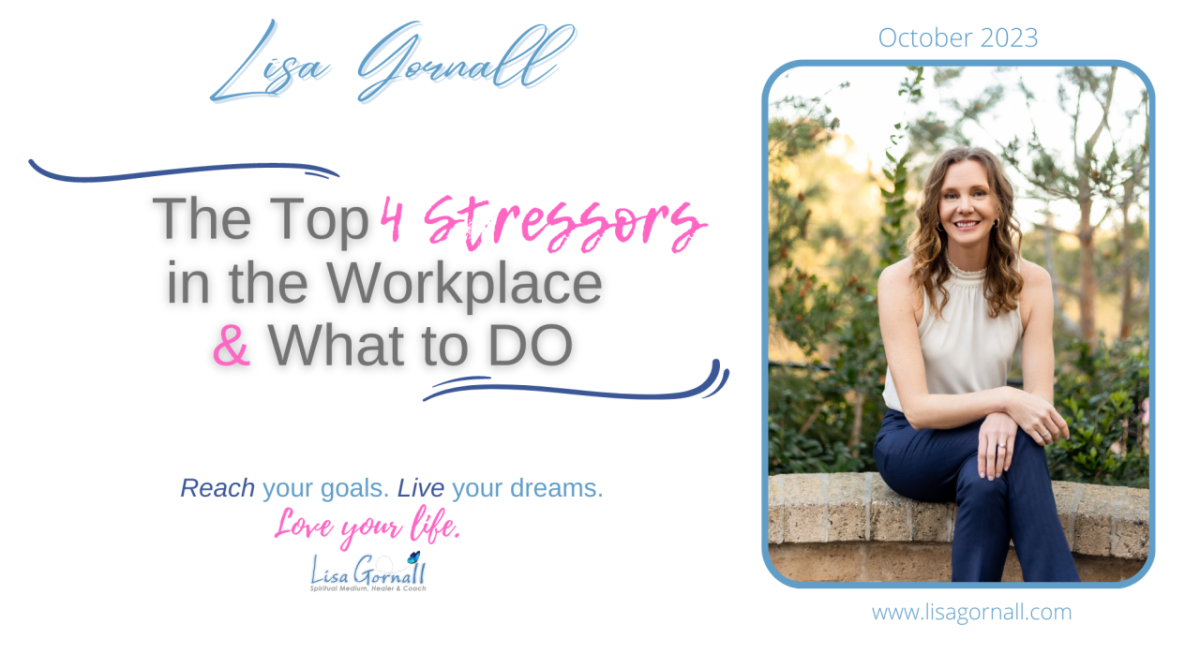Stress is a workplace problem that isn’t disappearing. Why is that and what’s causing it?
Is it:
- The inability to find more good workers to help with the workload?
- Giving more work to high performers than they can manage and not being aware that they’re overwhelmed and overworked?
- Or is it having the wrong support in place that is generic and ineffective for your team?
I find that it’s all the above. How about you?
All these things create more stress in the workplace. More stress in the workplace creates burnout, stress leave and employee turnover.
According to WebMD: 75% to 90% of all doctor's office visits are for stress-related ailments and complaints.
That’s an insane number of doctor’s office visits for stress and it’s completely preventable.That means that getting control over the stress in the workplace is a #1 priority.
This isn’t work for just the high performers to do single handedly- there is work to be done with the team and leaders as well. It’s a company problem.
How is stress regularly created in your workplace?
These are the things you want to stop doing immediately in the workplace. They create stress which leads to all the issues you want to prevent.
1. Stop Having IMPOSSIBLE Workloads and Deadlines
If you keep assigning deadlines and tasks aren’t getting completed by your high performers – this is your sign that their workload is out of balance – even if they haven’t told you yet. This will create a tremendous amount of stress for them.
And note that if high performers start setting boundaries around what you’re giving them to do – you’re in the danger zone as an employer.
2. Short Staffed
I hear a lot of companies are still short staffed. I know, it takes time to hire key players but what are you doing to your staff in the meantime? How long can they continue to overwork like this? How are you supporting them so they can still be with you when you hire the key players you’re looking for?
And in the meantime, where does that money go that they isn’t being payed to the staff you don’t have? Here’s a big tip for you – give your staff that is picking up the slack: extra PTO time, a raise, a promotion, a team retreat or the support they need in the organization to continue to thrive. There’s a lot of things that can be done, just make sure you’re doing something before you have a bigger problem on your hands – like their resignation letters.
3. Giving More Work to High Performers than Other Workers
Does this happen on your team? An excessive workload is the #1 cause of burnout. Who gets more work? You know this – the high performers of course. Why – because you know they’ll get it done at some point.

But do you know at what cost to them and how this impacts the team? This is a huge stress factor so think before you give your top performers more to do – who else can do this. Only give them what they need to do.
Supported high performers are the most consistent performers and they thrive.
4. Unresolved Conflict
Ignoring any work conflict leads to worse team performance. As a high performer who has worked for some big name corporations – you want to stay on top of resentment among the team for those that collect their paycheck while doing the bare minimum.
While low performers eventually are terminated, think about the issues they’re causing the team, more importantly your high performers while they are there.
High performers are an asset because they get more done than other workers. But of course this causes bitterness and irritation between the team members that are performing and the ones who aren’t.
Who are the high performance mooches – as I like to call them – in your organization? How is their workload and compensation compared to your high performers? It better not be the same if you want to retain them.
Stress in the workplace doesn’t increase productivity, morale or employee retention.
You don’t want your employees to be stressed, yet most companies have employees feeling the stress for months if not longer.
Stress isn’t simply reduced in the workplace by introducing yoga, meditation or breath work without addressing the problems above. Your employees are going to ROLL their eyes and be more irritated.
They don't have time. This is your biggest problem and their biggest stressor.
To reduce stress in your workplace, you want to decrease the stress you give to your employees and give them customized and personalized tools to decrease the stress they physically take on. I can help you with this.
Stop ignoring the stress in your workplace because it does end up costing you your top performers who are difficult to replace.
Now that you know what the top 4 stressors are in the workplace, I hope you are ready to take action to make them disappear. Feel free to share this article with your team and if you’re ready for support, book a call with me to see how I can help you in “The Successful High Performer Program™.”






